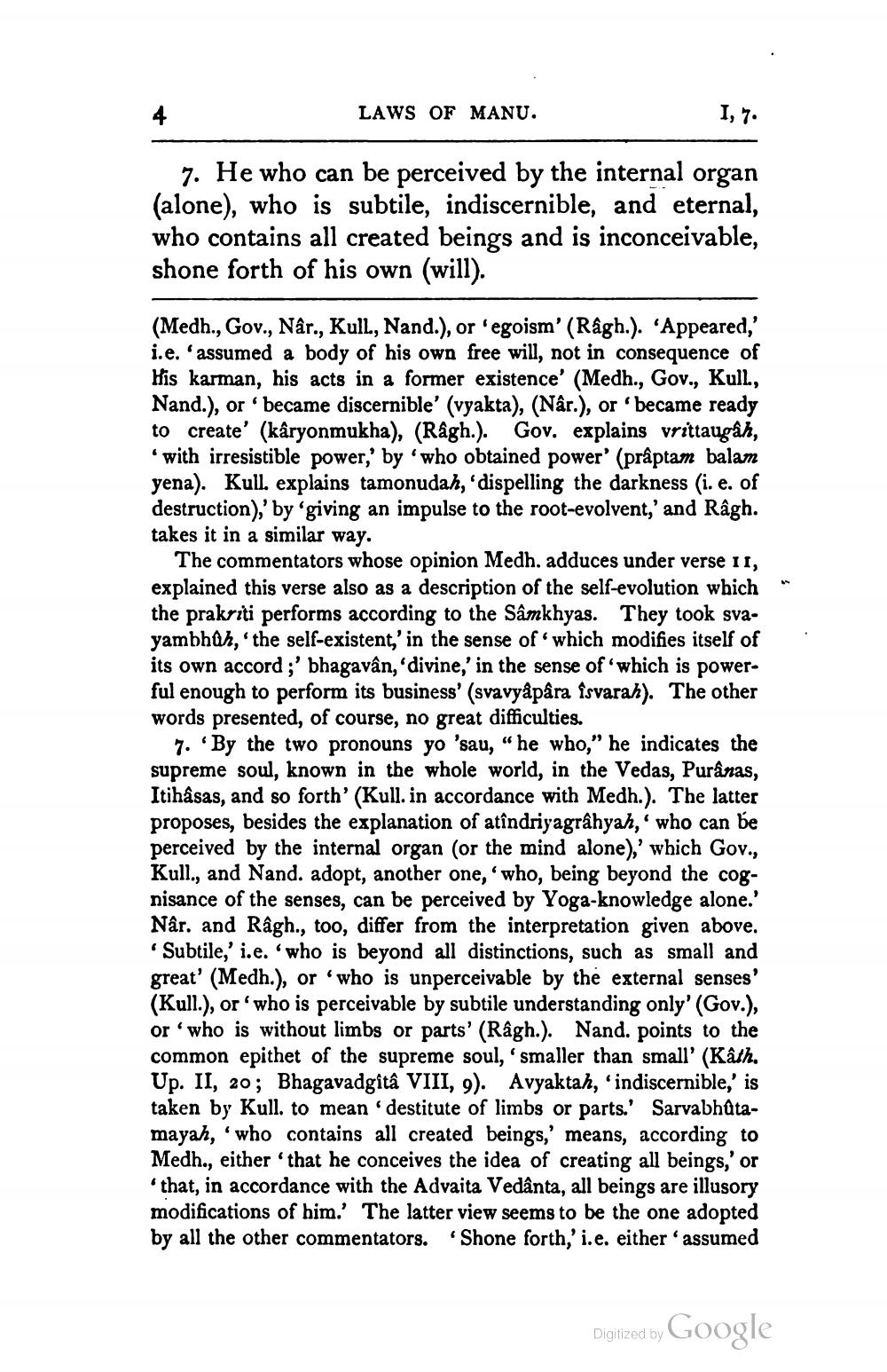________________
LAWS OF MANU.
1,7.
7. He who can be perceived by the internal organ (alone), who is subtile, indiscernible, and eternal, who contains all created beings and is inconceivable, shone forth of his own (will).
"
(Medh., Gov., Nár., Kull, Nand.), or 'egoism' (Râgh.). 'Appeared,' i.e. 'assumed a body of his own free will, not in consequence of His karman, his acts in a former existence' (Medh., Gov., Kull., Nand.), or became discernible' (vyakta), (Nâr.), or became ready to create' (kâryonmukha), (Ragh.). Gov, explains vrittaugâh,
with irresistible power,' by 'who obtained power' (prâptam balam yena). Kull. explains tamonudah, dispelling the darkness (i. e. of destruction),' by giving an impulse to the root-evolvent,' and Râgh. takes it in a similar way.
The commentators whose opinion Medh. adduces under verse 11, explained this verse also as a description of the self-evolution which the prakriti performs according to the Sâmkhyas. They took svayambhồh, the self-existent,' in the sense of which modifies itself of its own accord ;' bhagavân, 'divine,' in the sense of which is powerful enough to perform its business' (svavyåpara îsvara/). The other words presented, of course, no great difficulties.
7. By the two pronouns yo 'sau, "he who," he indicates the supreme soul, known in the whole world, in the Vedas, Puranas, Itihasas, and so forth' (Kull. in accordance with Medh.). The latter proposes, besides the explanation of atîndriyagrâhyah, who can be perceived by the internal organ (or the mind alone),' which Gov., Kull., and Nand. adopt, another one, who, being beyond the cognisance of the senses, can be perceived by Yoga-knowledge alone.' Når. and Râgh., too, differ from the interpretation given above.
Subtile,' i.e. who is beyond all distinctions, such as small and great' (Medh.), or who is unperceivable by the external senses' (Kull.), or who is perceivable by subtile understanding only' (Gov.), or who is without limbs or parts' (Râgh.). Nand. points to the common epithet of the supreme soul, smaller than small' (Kath. Up. II, 20; Bhagavadgita VIII, 9). Avyaktah,'indiscernible,' is taken by Kull. to mean 'destitute of limbs or parts.' Sarvabhūtamayah, who contains all created beings,' means, according to Medh., either that he conceives the idea of creating all beings,' or
that, in accordance with the Advaita Vedanta, all beings are illusory modifications of him.' The latter view seems to be the one adopted by all the other commentators. Shone forth,' i.e. either assumed
Digitized by Google




